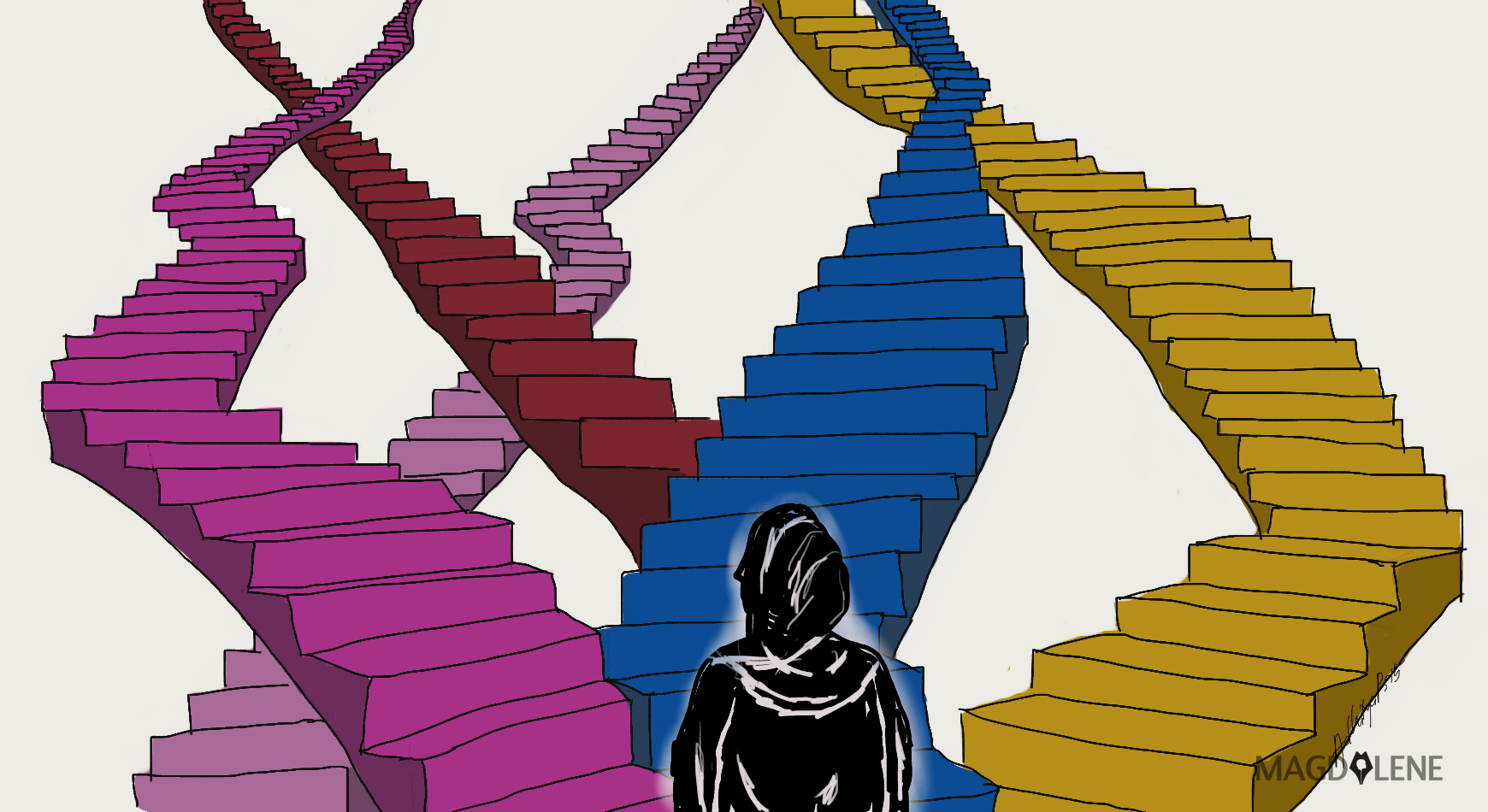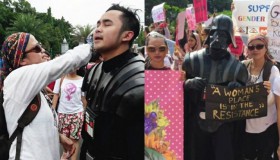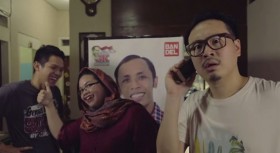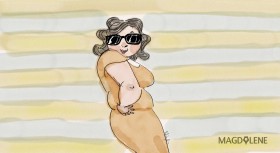
When I was a kid, I used to think having a religion is simply like having a name. Once we were born into it, we cannot change it. Like ethnicity, perhaps. As a teenager, I often wondered why I couldn’t change my name to one that fit me better, and why I couldn’t I change my religion to one I like better.
I’ve heard too many people say their religions are the right ones, while others are so wrong that they don’t deserve heaven. The first time I heard this I was seven years old, and it bothered me a lot because my best friend came from a Christian family. I thought, how is it fair for her?
In my own family, religion was taught along with misery. My dad was a former member of the Negara Islam Indonesia (the Islamic State of Indonesia or NII), and since he decided to join the group, my family had never been the same again. For one, my dad had to quit his civil servant job, because it was considered a betrayal to NII.
We sold our house and moved to a different citu once or twice a year. We never had a house that truly belonged to us. We never contacted our relatives in the village and we maintained a distance with our neighbors.
In order to conceal their true identities (NII was banned at the time; its members were pursued by the military), my parents burned their birth and married certificates, school diplomas, and other vital documents to turn them into “nobodies”.
My parents had more than one names. One time they were Mr. Abdul Karim and Mrs. Asri Hayati; three years later they might be someone else. That’s the way NII works, untracked, highly discreet like secret agents (minus the cool factor), and living transitory lives. Like other NII women, my mom was not allowed to use any contraception, so she gave birth to eight of us. This eventually damaged her uterus.
I still remember each month there were a lot of taxes to pay to the "state". The amount due depended on how many people were in the family. My dad had a limited income, barely enough to feed all of us and there were times when he couldn’t afford paying the taxes. In such case, NII allowed my parents to steal food from a non-Muslim’s store in order to pay his dues.
“Everything on earth belongs to Allah, so it’s legal to take away things from the non-Muslims, because they belong to us Muslims.” That’s what NII’s told my parent, and they did it.
According to the group, Islam would never truly exist without a state, which is why they are building one clandestinely. I don’t know how they could successfully deceive people not only to believe in their cause, but also to support them financially. A huge and famous pesantren (Islamic boarding house) in Indramayu, West Java, is where all my parents and other members’ effort for years went.
My dad was transferred to Ambon, Maluku, in 1997 and he brought us along. He was the district coordinator for students who wanted to enroll at the pesantren. We were living there when the sectarian conflict between Muslims and Christians broke. Before the conflict, these same people lived in harmony, despite their faith difference.
Although I was a Javanese Muslim, I lived in a community with a high population of Christian Ambonese. An introverted little girl, there I found my best friend – a Catholic. But as the conflict worsened, things changed. We had to leave our predominantly Christian neighborhood and moved to a Muslim area.
The war changed relationships and soured friendships. It was never the same again. People mocked each other’s God as part of "war-time jokes". I was in second grade when I witnessed my elder brother and his Christian friends shouting at each other while walking to school.
My brother’s friends would say something like, “How could you have a God that cannot be seen? You practically worship nothing!”
My brother yelled back, “How could you pray to a statue? It doesn’t even move, much less help you.” They continued to ridicule and laugh at each other.
As an anak bawang, the youngest one, I stayed silent. It’s a battle among the 6th graders, not mine. But what they fought about stayed in my mind for years. The conceptualization of God has been filling my head since.
The religious taunting, the Muslim-Christian war in Ambon, and the stupid things my parents did in the name of religion kept me confused, so much so that I decided to relearn my religion.
I began to take everything with a grain of salt: what my parents taught me about religion, what the famous and commercial ustads (religious preacher) shout about every morning on television, or what my veiled girl friends said to me.
I incorporated my personal insights that combine logic and the basic principle of tolerance into my own understanding of my religion. I thought if I didn’t do this, I would just be one of those ‘zombies’ who follow and do what everybody does. Like those people who are easily provoked to do horrible things – killing, stealing and insulting others – in the name of religion.
I did not want to end up like my parents, deceived by their own misguided belief.
I relearned Islam and found out rationally why I needed it. It is personal. I found my religion, because I do not merely accept it. I found it because I tried to understand it fully. I hope people do so with their own religion.
It took a long time for me to realize that religion is actually like a name. Some people who were born into it fit in, some don’t. Some prefer to change it; some go just anonymously.
For me, it’s not a matter of changing my religion, but how I can turn it into something meaningful for myself.
As for my dad, he finally decided to leave NII at the end of 2005.
Demetria is a 22-year-old half-baked student from an overly baked family. Perplexed about the future, she has little enthusiasm for a professional job and is considering endless traveling for a career, but is still trying to figure how to possibly do it.








Comments